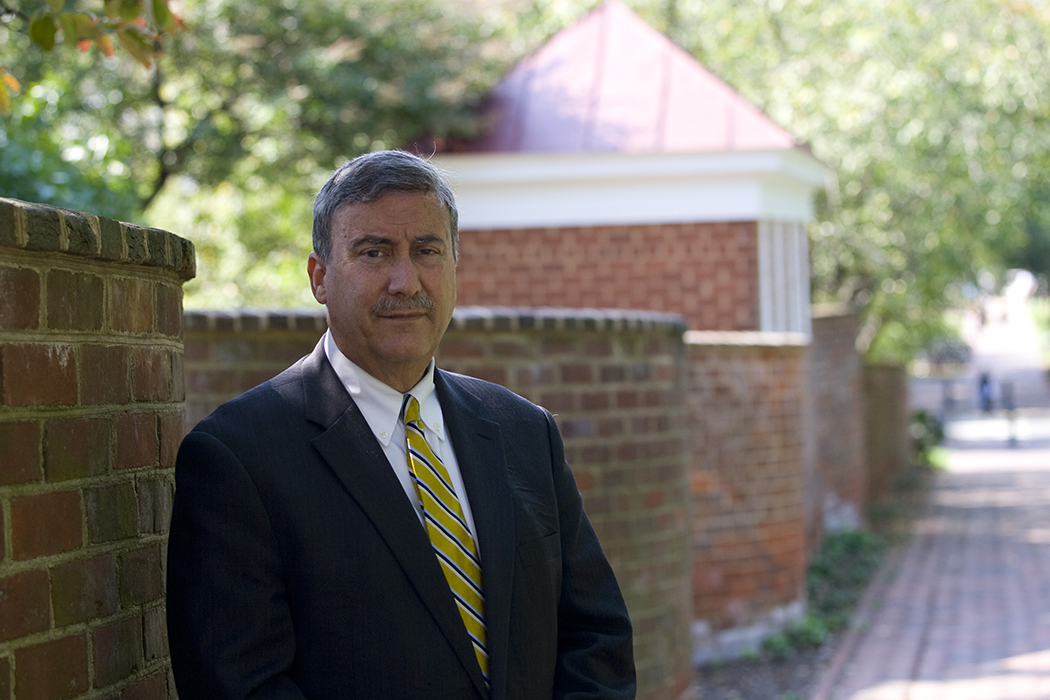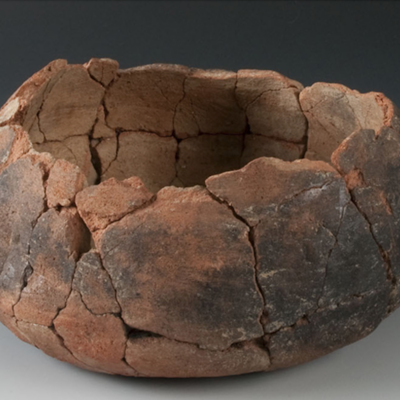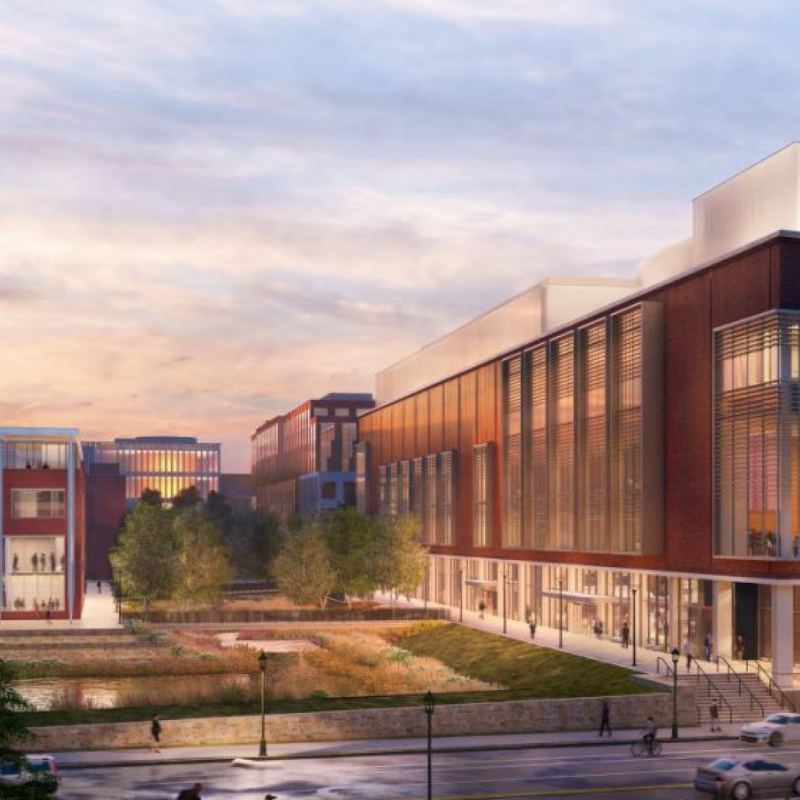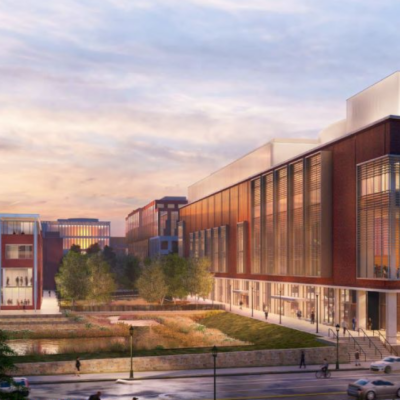Larry Sabato will keep on tweeting
The Republican Party of Virginia has a big campaign underway. The organization is trying to help its candidate, Glenn Youngkin, win a governor’s race in a once-purple state that’s gone blue in every statewide election since 2009. But Rich Anderson, chair of the VA GOP, apparently has other matters on his mind—like Larry Sabato’s tweets.
Anderson penned a letter to UVA President Jim Ryan last week, accusing politics professor and Center for Politics director Sabato of a “public display of bitter partisanship” online. Anderson says Sabato’s tweets criticizing Donald Trump and the Republican Party violated the non-partisan mission of the university and the center, which is nationally recognized for its election forecasting.
In the letter, Anderson pointed to specific tweets that had hurt his feelings. “Trump, who governed on the edge of insanity for four long years, has gone over the edge,” Sabato wrote on June 3. “Yet millions of people and 90%+ of GOP members of Congress, still genuflect before this false god.”
Sabato told the Richmond Times-Dispatch that the letter was “silly but predictable.” He also tweeted about the whole affair. Sabato pointed toward a famous quote from President John F. Kennedy: “The hottest places in hell are reserved for those who, in times of great crisis, maintain their neutrality.”
“All by itself, [that quote] explains why I have said the things I have in the Trump era,” Sabato wrote.
You tell ’em, Larry.
UVA police chief Tim Longo’s back in the news

The Intercept, a national news site known for investigative and adversarial journalism, posted a long exposé July 9 on Charlottesville’s former police chief Tim Longo, who currently works as the chief of the University Police Department and the associate vice president for safety and security at UVA. The Intercept story recounts a period from 2002 to 2004 during which Charlottesville police, under Longo’s supervision, implemented a “DNA dragnet” to collect cheek swabs from nearly 200 Black men. The story reported that the program targeted more Charlottesville residents than was previously known.
CPD was on the hunt for a serial rapist, who struck first in 1997 and again in 2002. The department had the rapist’s DNA, but no physical description other than that the perpetrator was Black man. Longo then implemented a policy that allowed officers to approach Black men in Charlottesville who the officers felt matched the extremely broad description, and ask for DNA samples.
The Intercept’s investigation found evidence to refute Longo’s claim from the time that the dragnet was “tightly controlled.” Black men were stopped at random, sometimes at their homes or place of work, and although they were not “forced” to consent to a swab, many felt it was the only option. Those who refused were often asked again. According to CPD court filings, “of the 30 men who initially refused to be swabbed, nine would later relent.” Records revealed that the university and Albemarle County police also swabbed residents, and that UPD handed over UVA students’ information to CPD as well.
Longo abandoned the program when the community pushed back, but Charlottesville resident Raymond Mason tells the Intercept that it represented an “all-time low” for police-community relations in the city, and that the pain caused by the program still resonates.—Amelia Delphos
EPA recommends denying pipeline permits

The Environmental Protection Agency has recommended that regulatory agencies deny the Mountain Valley Pipeline permission to cross hundreds of streams along the 300-mile natural gas pipeline’s route through West Virginia and western Virginia. If the regulatory agencies heed the EPA’s advice and deny stream-crossing permits, the pipeline construction—already years behind schedule—would slow even further.
Throughout the pipeline’s construction process, activists have pointed to environmental harm caused by disruptive and invasive fossil fuel projects like this one.
“It’s now common knowledge that MVP has racked up more than 350 water-quality violations where construction has occurred,” wrote Amy Adams of anti-pipeline activist group Appalachian Voices in a statement about the EPA’s recommendation. “The EPA’s clearly articulated concerns should send a loud message to Virginia and West Virginia regulators who are reviewing their own water-crossing permit applications for the project—those permits must be denied.”
“This is not erasing history…The conservators of racism want us to honor the conservators of slavery. No more.”
—Author Ibram X. Kendi, reflecting on the removal of the statues this weekend
In brief:
Park yourself here
A new park opened in Charlottesville last week at the intersection of Eighth Street and Hardy Drive in the 10th and Page neighborhood, one of Charlottesville’s historically Black neighborhoods. The city owned the land already, and had previously demolished flood-damaged houses on the lot. A $430K Community Development Block Grant funded the facelift. The small park hasn’t been named yet—the city says residents will have a say in choosing the moniker.
Mental health facilities freeze admissions
Five of Virginia’s eight state-operated mental hospitals are not admitting any more patients, as a staffing crisis has left remaining care workers dangerously overburdened, according to the state’s Department of Behavioral Health and Developmental Services. In the last two weeks, 108 workers have resigned. Local state Senator Creigh Deeds, a committed advocate for increased state investment in mental health, promised that legislators would seek to address the issue in their upcoming legislative session. “We are in a desperate situation,” Deeds told The Washington Post. “I get why admissions had to be closed. I’m frustrated and saddened by it, but we’ll do what it takes to fix the issue.”
Vaccines at work
Since the beginning of the year, 2,429 Virginians have died of coronavirus. Ninety-nine percent of those deaths have been among unvaccinated people, according to a new dashboard released by the Virginia Department of Health last week. Breakthrough cases are possible but extremely rare—4.4 million Virginians are fully vaccinated, and just 17 have died from the virus.






